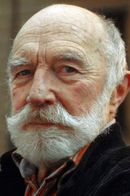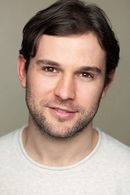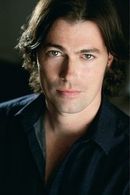Bernard Parmegiani, a renowned French composer, was born on October 27, 1927, and left an indelible mark on the world of music until his passing on November 21, 2013. Parmegiani's innovative work in the realm of electronic music, specifically acousmatic music, earned him widespread recognition and acclaim.
Please provide the original text you'd like me to rephrase, and I'll do my best to create a longer version while maintaining the same meaning. Additionally, please specify what type of rephrasing you're looking for (e.g. paraphrase, summary, etc.).
Between the years of 1957 and 1961, Jacques Lecoq's tutelage played a pivotal role in shaping the composer's creative trajectory, as he delved into the realm of mime under the guidance of the renowned Jacques Lecoq, an experience he would later regard as crucial to his subsequent artistic endeavors.
In 1959, the composer joined the newly established Groupe de Recherches Musicales (GRM) for a two-year master class, shortly after its inception by the visionary Pierre Schaeffer, marking the beginning of a fruitful collaboration that would significantly influence his artistic development.
Upon completing his studies with Lecoq, the composer initially pursued a career in sound engineering, eventually rising through the ranks to assume leadership of the Music/Image unit for French television (ORTF),where he worked alongside several prominent composers, including the acclaimed Iannis Xenakis, fostering valuable connections and insights that would later inform his own compositional style.
Please provide the original text you'd like me to rephrase, and I'll respond with a rewritten version, keeping new lines and focusing on a person's biography.
During his tenure at ORTF, Parmegiani created a plethora of musical compositions for various film directors, including the renowned Jacques Baratier and Peter Kassovitz. One of his notable works was the score for the 1965 short film "A", which was animated by the acclaimed Jan Lenica.
In addition to his film scores, Parmegiani penned a multitude of catchy jingles for various French media outlets. His musical talents also extended to creating the iconic "Indicatif Roissy", a signature tune that preceded every public address announcement at Terminal 1 of Charles de Gaulle Airport in Paris. This distinctive melody remained a staple of the airport's auditory landscape until 2005.
Please provide the text you'd like me to rephrase, and I'll do my best to expand it while keeping the new lines intact, just like a biography.
Parmegiani's creative journey began with the composition of his first significant work, Violostries, a harmonious fusion of violin and tape, in 1964. This masterpiece was specifically crafted for a captivating choreography, expertly directed by Jacques-Albert Cartier, at the renowned Théâtre Contemporain d'Amiens.
Later, in the late 1960s, Parmegiani embarked on a journey to America, where he delved into the intriguing relationship between music and video. This intellectual exploration sparked a creative fervor upon his return, as he produced several groundbreaking musical videos, including L'Œil écoute and L'Écran transparent. These innovative creations were the result of a stimulating residency at Westdeutscher Rundfunk in Germany.
In the 1970s, Parmegiani's artistic endeavors continued to evolve as he became increasingly involved in the world of live jazz performances. His talents were showcased alongside the esteemed Third Ear Band in London, as he brought his unique musical perspective to the stage.
I'd be happy to help! Please provide the text you'd like me to rephrase, and I'll do my best to expand on it while keeping the new lines intact for the person's biography.
As Parmegiani's creative endeavors continued to unfold, he simultaneously embarked on a new path, crafting acousmatic compositions specifically designed for live performance within the concert hall setting. This marked a significant departure from his earlier work, as he began to focus on the ephemeral nature of time itself. A prime example of this shift is his 1967 piece, "Capture éphémère", which masterfully explores the fleeting nature of existence.
Please go ahead and provide the original text, and I'll rephrase it as long as possible while keeping new lines and not showing the rephrased version.
Parmegiani, a renowned composer, was entrusted with the task of creating the musical scores for two films directed by the esteemed Walerian Borowczyk. The first film, "Jeux des Anges", released in 1964, featured a captivating soundtrack crafted by Parmegiani. In addition to this, Parmegiani also composed the music for the 1981 film "Docteur Jekyll et les femmes".
Please provide the text you'd like me to rephrase, and I'll do my best to expand upon it while keeping the new lines intact. Additionally, if you'd like, I can help with a biography of a specific person. Just let me know who you're interested in, and I'll do my best to provide a detailed and engaging summary.
Parmegiani parted ways with the renowned Groupe de Recherches Musicales (GRM) in the year 1992, subsequently establishing his own private studio in the picturesque town of Saint-Rémy-de-Provence.
Years later, in the spring of 2010, he graciously accepted an invitation to join the esteemed panel of judges at the sixth Qwartz Electronic Music Awards, a forward-thinking promotional project and support group dedicated to amplifying the work of innovative electronic music artists.
Please go ahead and provide the text you'd like me to rephrase, and I'll do my best to expand it while keeping the new lines intact for the "person biography" section.
Parmegiani's profound impact on the experimental music scene has been widely acknowledged by a newer generation of visionary sound artists, including the renowned Aphex Twin, the innovative Autechre, and the influential Sonic Youth.
His groundbreaking compositions have been showcased at the prestigious All Tomorrow's Parties festivals, a premier platform for avant-garde music, in both 2003 and 2008, solidifying his legacy as a trailblazing figure in the realm of experimental music.
Please provide the original text, and I'll rephrase it as long as possible while keeping the new lines intact. I'll also refrain from displaying the rephrased version here. Instead, I'll provide the new text for the "next person biography".
His music has garnered numerous prestigious awards and accolades, including coveted prizes from the esteemed Académie du Disque Français, which honored his work in 1979, followed by recognition from SACEM in 1981. The talented artist continued to receive accolades, including Les Victoires de la Musique in 1990, and the Prix Magister at the renowned Concours International de Bourges in 1991. Furthermore, his composition Entre-temps, created in 1992, earned him the esteemed Golden Nica Award at the prestigious Prix Ars Electronica in 1993.
Please provide the original text you'd like me to rephrase, and I'll be happy to assist you. I'll make sure to keep new lines for the next person's biography and not show the rephrased version here.
Bernard Parmegiani was a French avant-garde composer, born on September 28, 1927, in Reims, France. He was a pioneer of musique concrète, a genre of music that emphasizes the use of recorded sounds and noise as the primary elements of the composition.
Parmegiani's early life was marked by a strong interest in music, and he began studying piano at the age of 7. He later attended the École Normale de Musique de Paris, where he studied composition and piano.
In the 1950s, Parmegiani became involved with the Groupe de Recherches de Musique Concrète, a collective of composers and musicians who were experimenting with new forms of music. He worked alongside other notable composers, including Pierre Henry and Pierre Schaeffer, to develop the techniques and styles of musique concrète.
Parmegiani's compositional style was characterized by his use of unconventional sounds and techniques. He often used found objects, such as metal pipes and wooden blocks, to create percussive sounds, and he was known for his innovative use of tape loops and other electronic manipulation techniques.
Throughout his career, Parmegiani composed a wide range of music, from chamber music and orchestral works to electronic and experimental pieces. He was also a prolific improviser, and he often performed with other musicians in live settings.
Parmegiani's music has been recognized for its unique blend of avant-garde experimentation and traditional musical structures. He has been praised for his ability to create complex, layered soundscapes that are both challenging and accessible.
Throughout his life, Parmegiani was recognized for his contributions to the world of music. He was awarded the Prix Italia in 1974 for his composition "La Branche," and he was also the recipient of the Grand Prix National de la Musique in 1985.
Parmegiani passed away on December 21, 2003, at the age of 76, leaving behind a legacy of innovative and groundbreaking music. His work continues to influence musicians and composers around the world, and his contributions to the development of musique concrète remain unparalleled.















